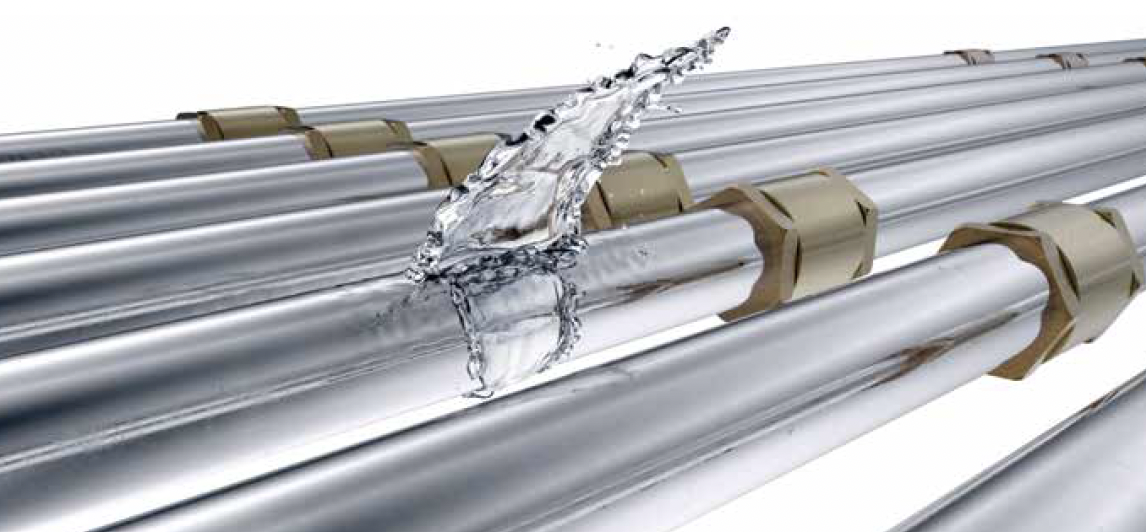
4 minute read
How to Speak Maintenance: Fire Sprinklers
In the winter of 2021, Texas was faced with severe snowstorms, causing residents across the state to deal with power outages, frozen water lines and property damages.
The maintenance and office staff were the first point of contact for residents seeking answers and solutions. One of the benefits of the storm was that it identified the properties’ vulnerabilities and where to make improvements.
The freezing temperatures and snow created numerous issues for properties, including:
• Loss of electricity and power
• Frozen water and sprinkler lines
• Property damages
• Increased electric bills
• High repair and remediation costs
Even when homes and properties are built to code, when electricity fails, insulation can only protect systems and pipes from the elements for a short amount of time. Frozen sprinkler lines became one of the most common, and most problematic, issues to arise from the winter storms. Because Texas typically does not see storms of this magnitude, many properties did not have adequate insulation because building codes did not require substantial insulation based on the state’s history of freezing temperatures. Additionally, without electricity, these communities lost access to heaters, air compressors and heat trace in sprinkler rooms.
As the temperatures began to rise, the full extent of the damages became more apparent with overflowing sprinkler systems and burst pipes. Unfortunately, many repair companies were dealing with an influx in maintenance requests, part shortages and difficulties navigating the dangerous roadways.
One of the greatest takeaways from the catastrophic storm was how to better prepare properties for weather-related issues, regardless of how “once in a lifetime” they may be.
So how can properties be better prepared in the future?
• Stay on top of routine maintenance. Maintenance teams need to ensure they are servicing and checking the various systems throughout the property, from A/C and heating units to sprinkler systems and power-operated systems. Don’t wait for a significant shift in weather to begin testing your systems; it may be too late!
• Don’t wait to prepare. Stock up on supplies like generators, salt for pathways, water and other necessities before bad weather is expected, as many of these essential items may be out of stock or difficult to find.
• Be aware of changes and shifts in weather, and keep residents up-to-date on what to expect and how to better prepare. Let them know how the maintenance and office teams are preparing for the storms, and how they can utilize them if needed.
• Develop partnerships with your systems’ service teams, as they may be your first call when problems arise. They can help you troubleshoot issues and hopefully get things up and running if they aren’t able to physically be there to do it themselves.
• Work as a team. If bad weather hits, roads may be inoperable, meaning communities may have limited team members on site. Maintenance and office teams should support each other by sharing information, lending a hand and communicating with residents.
• Pass on your knowledge. While we may want to forget the hardships, it’s important to share and document the successes and shortcomings of response efforts to best learn from our mistakes.
Key Takeaways:
• Winter storms can cause significant problems, including power outages, frozen sprinkler lines, property damage and substantial repair costs.
• While damaging, these storms identified the vulnerabilities in properties and where improvements need to be made.
• Don’t wait until storms are imminent to prepare. Maintenance teams should utilize off-seasons to test equipment and service systems.
• Office teams should be in regular communication with residents, updating them on hazardous weather conditions and providing tips to help them handle weather-related issues that may arise.
• Teamwork between office and maintenance teams is vital to “weathering the storm.”
• We best learn from our mistakes, so take note of what worked and what didn’t to avoid future issues.
“How to Speak Maintenance” is a monthly series that focuses on teaching property managers and office staff how to better understand and appreciate the work and the value of the maintenance teams, eliminate conflict points that come up, and provide better customer service for our residents. Each episode features different topics guests. This episode, “Fire Sprinklers,” features:
Becca Ramati, Vice President of TAA’s Education Foundation
Jason Fein, National Maintenance Service Director for Camden Property Trust and Series Host
Debbie Wiatrek, Vice President for Asset Living for the Southwest Region
Chris Walulik, Project Manager, Field Coordinator and Trainer for Oasis Fire Protection









